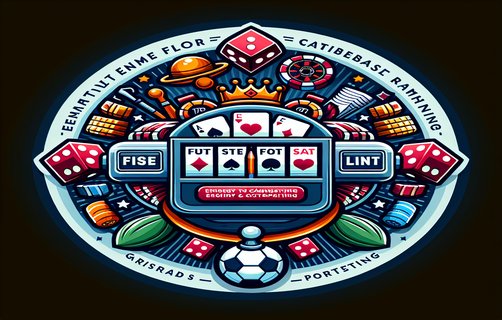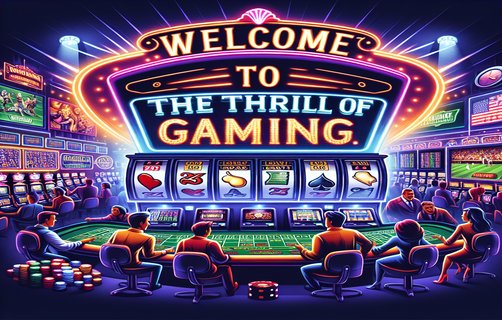The Double-Edged Sword of Gambling: Opportunities and Ethical Dilemmas
In an era where technology pervades every aspect of our lives, the gambling industry is experiencing a seismic shift influenced by digital platforms and social media. This transformation has made gambling more accessible than ever, giving rise to various aspects that deserve critical moral discussion.
One of the most striking developments is the proliferation of **fruit machines**. Once confined to smoky pubs and backrooms, these captivating devices now feature prominently in online casinos, enticing players with dazzling lights and the promise of quick rewards. While the allure of spinning reels attracts many, it raises ethical concerns about compulsive behavior. With many individuals treating these machines as harmless entertainment, the potential for addiction looms large. Critics argue that the easy accessibility of fruit machines blurs the line between leisure and harmful gambling, calling for increased regulations to mitigate the risk of addiction.
Simultaneously, the surge of **gambling influencers** shares the spotlight. With platforms like Instagram and TikTok giving these personalities an audience, young and impressionable individuals are often exposed to glamorized portrayals of gambling. While these influencers can provide entertainment and tips, their impact on poorer decision-making among followers cannot be understated. The moral dilemma arises: are they showcasing responsible gambling techniques, or are they promoting a culture of reckless betting? Authorities and ethical organizations must interrogate the responsibility of these influencers in what they promote and how they can help curtail the potential downsides of their reach.
Moreover, **free bet promotions** have become a common tool for attracting new players to gambling sites. These promotions almost appear benign, offering a risk-free way to try one’s luck. However, beneath the surface lies a concerning truth: such promotions often lure inexperienced gamblers into environments where they can develop harmful habits. The ethical question remains: to what extent do these promotions exploit vulnerable individuals? Advocates for responsible gambling argue that while they can enhance user experiences, enhanced scrutiny is essential to protect new players from falling into adversities that come with gambling addiction.
In the realm of **live poker**, seasoned players often share their experiences, offering **tips** that can enhance gameplay. While these insights can be beneficial for those looking to improve their strategic skills, the essence of poker as a game hinges on luck and human intuition. Engaging in such exchanges can foster healthy competition; however, it also calls into question the potential for *collusion* among players seeking to gain an unethical edge. This further complicates the narrative of integrity in gambling, as players must navigate the fine line of cooperation versus collusion.

Another important aspect to consider is the introduction of **betting limits**, which have become vital to promote responsible gambling. These limits can protect players from overspending but can also curb the enjoyment of those who gamble responsibly. Striking a balance between protection and personal freedom presents a moral challenge that regulators must face. As the industry grapples with these issues, the necessity for **support groups** is amplified, providing essential services to individuals struggling with gambling addiction. These groups offer a haven where individuals can share their experiences and receive help in overcoming their challenges.
Moreover, the specter of **match-fixing news** continues to pose ethical dilemmas for the sports and gambling industries. Reports of matches manipulated for betting purposes erode trust in the integrity of sports. This betrayal not only affects players and organizations but also undermines the foundational values of fair competition that defines sportsmanship. Stakeholders must commit to comprehensive investigations and preventive measures to uphold the sanctity of sport and betting.

In summary, the gambling industry presents a complex interplay of opportunities and ethical dilemmas that demand careful consideration. As society navigates these challenges, the balance between enjoyment and responsibility remains ever more critical.
